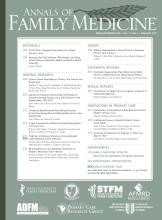A Review of ADFM’s Annual Conference, February 12–15, 2020
2020 was a year of firsts for ADFM’s Annual Conference in New Orleans. The first with a new name (“Annual Conference” replacing the legacy name “Winter Meeting”), the first with Amanda Weidner, MPH, as Executive Director, the first with over 250 attendees, and the first with a keynote “Heritage Fund Speaker,” Professor Sir Michael Marmot, Director of the UCL Institute of Health Equity.
Professor Marmot’s eminent career of over 40 years researching health inequalities and inequities directed the title and theme of this year’s conference, with his book, The Health Gap: The Challenge of an Unequal World, selected as the One Book, One ADFM title. His presentation started with the baseline question, “Why treat people and send them back to the conditions that made them sick?” followed by data on life expectancy trends for men and women, the steady decline of children earning more than their parents, and the impact changes in well-being had on inequalities. Professor Marmot also shared data and details related to the 6 objectives of his Fair Society, Healthy Lives policy, evidence-based strategies to address fairness and social justice which also reduce health disparities: (1) Give every child the best start in life; (2) Enable all children, young people, and adults to maximize their capabilities and have control over their lives; (3) Create fair employment and good work for all; (4) Ensure healthy standard of living for all; (5) Create and develop healthy and sustainable places and communities; (6) Strengthen the role and impact of ill health prevention.
The theme of “closing the gap” in health inequalities was also covered in a variety of other sessions:
ADFM President Allen Perkins, MD, MPH, shared his personal experience, as a physician and Chair of the Department of Family Medicine at South Alabama University, of slowly moving the health equity needle forward when in a “red state.”
ADFM’s Diversity, Inclusion, and Health Equity committee organized 6 action-oriented breakout discussion sessions on: (1) recruitment of faculty staff; (2) retention and recruitment strategies for students and leadership development; (3) coming together in action for inclusion, equity, and diversity; (4) inclusion of those with disabilities; (5) diversity and inclusion training (including implicit bias and others); and (6) intentional management throughout the system.
Topic tables during breakfast sessions on Thursday and Saturday mornings included content on ways to address social determinants of health and recruiting medical students to family medicine.
ADFM’s 5 strategic committees (Diversity, Inclusion, & Health Equity, Education Transformation, Health-care Delivery Transformation, Leader Development, and Research Development) met over lunch on Thursday (open to all attendees). New in the 2-year strategic plan are diversity, health equity, and inclusion goals unique to each committee’s focus.
Steven Waldren, MD, Vice-President and Chief Medical Informatics Officer of AAFP, was also a keynote speaker, with a plenary that explored the emerging “4th Industrial Revolution” of artificial intelligence and its potential impact on family medicine. Understanding the differences between artificial intelligence and machine learning, identifying opportunities and challenges in AI/ML, and noting key issues that will need to be addressed by academic departments of family medicine led to a lengthy and active question/answer period that concluded the session!
ADFM has many collaborative partnerships and priority initiatives that generated other plenaries. The Best Practice Guide for Strategic Planning to Increase Student Choice of Family Medicine made its soft launch debut at the 2020 Annual Conference. It was developed by ADFM’s Education Transformation Committee with feedback and support from several FM associations and the 25x2030 Student Choice Collaborative. Building Research Capacity (BRC) is a joint initiative between ADFM and NAPCRG in cooperation with STFM and AFMRD. BRC held their very first preconference workshop, The Leader’s Guide to Decision-Making When Building Research and Scholarship Capacity and also facilitated the ABFM Updates and Opportunities for Research Partnership–Working Together presentation by ABFM President & CEO, Warren Newton, MD, MPH. Development of leadership skills and the theme of having critical conversations was addressed by the Leader Development Committee’s Conflict Management 301 preconference workshop; How Departments Can Engage in Respectful Dialogue in an Era of Diverse Values, session moderated by Christine Arenson, MD, with a panel of Kevin Grumbach, MD, Julie Moretz, and Thomas Peterson, MD; and the Leadership & Management Dilemmas Dinner moderated by Jeff Borkan, MD, PhD, Thomas Peterson, MD, and Steven Rothschild, MD.
The business of running a department is always covered in numerous ways at the ADFM conference. This year, it was addressed by The Changing Landscape of Reimbursement: Challenges and Opportunities moderated by Kim Roe, MBA, with a panel of Norman Ward, MD, David Serlin, MD, Jeff Borkan, MD, PhD; The ‘Unproductive Provider’: A Systematic Method for Evaluation and Improvement of Under-Producing Physicians and Advance Practice Nurses presented by C. Kimi Suh, MD, MPH, FAAFP, Karen Tate, MPH, Aaron J. Michelfelder, MD, FAAFP, FAAMA; and Communication in a Complex Family Medicine Department presented by James Pacala, MD, MS.
Overall, something of interest for all attendees with some fun thrown in—a party to celebrate Emeritus Executive Director Ardis Davis on Thursday night and yoga led by our own Reid Blackwelder, MD, on Friday morning. Not to mention pre-Mardi Gras parades around the hotel that added a beat and spectacle each night. Now, on to Atlanta (Buckhead) for the 2021 Annual Conference!
- © 2020 Annals of Family Medicine, Inc.







